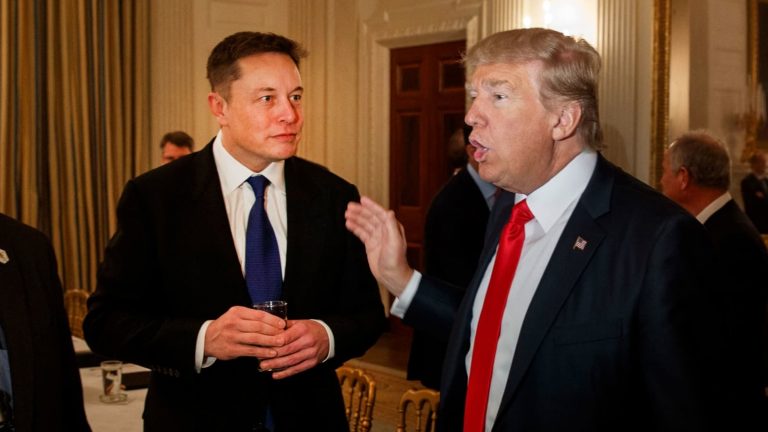
In what some investors are calling a long-overdue course correction, Elon Musk has announced plans to step back from his controversial position as head of the Department of Government Efficiency (DOGE), a move interpreted by analysts as an attempt to salvage Tesla’s standing after months of political turbulence and financial setbacks.
Musk made the announcement during Tesla’s first-quarter earnings call on Tuesday, revealing that he would significantly reduce the time he allocated to DOGE starting in May.
“My time allocation to DOGE will drop significantly,” Musk said. “I’ll have to continue doing it for the remainder of the President’s term just to make sure the waste and fraud that we stopped does not come roaring back…but I’ll only be spending a day or two per week on government matters.”
Register for Tekedia Mini-MBA edition 19 (Feb 9 – May 2, 2026).
Register for Tekedia AI in Business Masterclass.
Join Tekedia Capital Syndicate and co-invest in great global startups.
Register for Tekedia AI Lab.
The billionaire CEO framed the job as “mostly done.”
The statement came after Tesla posted a dismal earnings report, showing a 71% drop in quarterly profits and a 20% plunge in vehicle sales revenue compared to the same period last year. Tesla’s total revenue slid 9% to $19.3 billion, falling short of Wall Street’s expectations. Deliveries also slumped by 13%, marking the company’s first year-over-year decline in over a decade.
For months, Tesla has been battered not just by macroeconomic headwinds and rising global competition, but also by a wave of public backlash tied directly to Musk’s close alliance with President Donald Trump and his leadership in the White House’s cost-cutting agency, DOGE. The political alignment drew protests and calls for boycotts, with Musk even claiming—without offering proof—that demonstrators were “receiving fraudulent money” from the government.
But the biggest damage may have been financial. In its earnings release, Tesla admitted for the first time that “changing political sentiment” and “the current tariff landscape” posed immediate risks to its business. The company also warned of increasing uncertainty in global supply chains.
Now, it appears Musk is pulling back from Washington to focus on Tesla—a pivot interpreted by analysts as both necessary and urgent.
“Musk made a huge move forward as his time in DOGE/White House now winds down and he will be laser focused on Tesla again,” said Dan Ives, Managing Director of Equity Research at Wedbush Securities. “Musk finally read the room and made a pivot which helps remove the black cloud over Tesla. New chapter begins.”
Ives, who has remained a longtime Tesla supporter even during the company’s rocky period, raised his price target to $350, emphasizing a renewed focus on autonomous vehicle development. Still, he did not shy away from acknowledging the depth of the damage Musk’s political entanglements have done.
“Last night was a pivotal conference call for Musk to turn the corner from this dark chapter,” Ives said. “The 1Q numbers ended a disaster quarter in which deliveries were very soft and Tesla missed the Street on basically every metric. More important than numbers, this was the time Musk could pivot, speak to shareholders and employees, and take a turn away from the DOGE/Trump White House and recommit as CEO of Tesla…and he did it loudly and clearly.”
Even with the pivot, Tesla’s thin margin of profit this quarter was largely buoyed by an infusion of $595 million in government-purchased regulatory credits—funds unrelated to the company’s core operations. Without those credits, several analysts believe Tesla would have posted a loss. The credits, which automakers earn by selling electric vehicles and can sell to other companies to meet emissions standards, have historically been a controversial but vital cushion for Tesla.
Inside the company, CFO Vaibhav Taneja acknowledged the challenges during the earnings call.
“The negative impact of vandalism and unwarranted hostility towards our brand and our people had an impact in certain markets,” he said. “Despite this, we were able to sell out legacy Model Y.” Production for the legacy Model Y ended in February, as Tesla began ramping up new models.
Yet the question remains: has Musk truly learned from the consequences of mixing high-stakes business with partisan politics?
For many, the Tesla boss’s public missteps recall a lesson long held by Warren Buffett, the billionaire investor who has famously stayed away from direct involvement in political matters. Many believe Musk should have heeded that wisdom long ago. His tenure at DOGE, though framed as a crusade against government waste, has largely backfired—alienating parts of Tesla’s customer base, worrying shareholders, and allowing competitors like China’s BYD to gain ground while he was distracted.
Despite the retreat, Musk appeared to double down on his vision, ending the call with a flourish of political and historical references.
“Lift your gaze to the bright shining citadel on the hill — I don’t know, some Reagan-esque imagery — and that’s where we’re headed,” he said.



